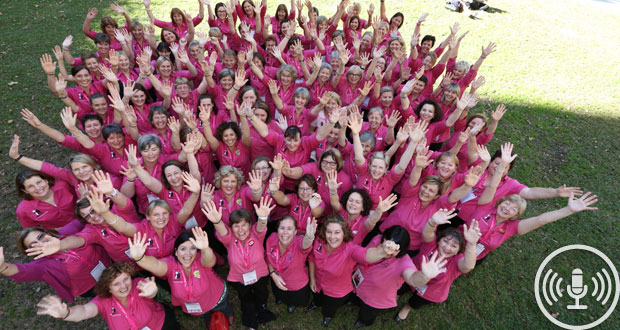The McGrath Foundation has announced the funding of an additional five McGrath breast care nurses to support families experiencing cancer, reaching its goal to increase the total number to 110 by its 10th anniversary.
The foundation said it has now supported 40,000 families affected by breast cancer, but identified that there is still a long way to go to realise the vision of access to a breast care nurse for every family experiencing breast cancer in Australia.
Petra Buchanan, chief executive of the McGrath Foundation, said: “It has been predicted that by 2017 there will be 209,200 women living with a breast cancer diagnosis, many of whom will require treatment or post-treatment monitoring and related care provided by breast care nurses. Our recent research also shows that this year in Australia, 145 men will be diagnosed with breast cancer.
Buchanan added research from the foundation has also highlighted that the demand for breast care nurses is far outstripping supply, due to increasing breast cancer incidence, a surge of people living with the disease, an ageing population and increased patient contacts.
The five new nurses will be placed in areas of greatest need, as identified by a recently released study, Keeping Abreast of Future Need: the Growing Demand for Breast Care Nurses. The research, released to coincide with the Foundation’s 10th anniversary, found Australia has a critical gap in breast care nursing services, which is set to widen by 38 per cent in the next five years if not addressed.
“Our research shows a gap across the nation, but also highlights key hotspots where breast care nursing services are required,” Buchanan said. “We are pleased to be able to partially address this need with the placement of five new McGrath breast care nurses in Western Sydney, Northern Sydney, Eastern Melbourne and South-east Melbourne – areas identified as being of greatest need.”
McGrath breast care nurse Vicki Bell said the role involves getting to know people, what’s worrying them and what their concerns are, and trying to address them and steer the client in the direction of the help they need.
Bell said the nurses get to know the people in their care well, as well as their family or loved ones. “It's a very rewarding role because you do feel like, with all the care, the information, that you're giving people, that you form a nice bond with people [and] rapport with them.”
She added the nurses get great feedback from a lot of the medical staff.
“We often sit in on consultations, especially the first consultation when someone's coming in to speak about what their treatment plan might be and there's going to be a lot of medical jargon that they may not understand,” Bell explained. “A lot of the medical oncologists and radiation oncologists find the role of the McGrath breast care nurse important because we tend to follow up with patients after their consultations and help explain things, assist them with side effects and … refer them to people who can help them.
“We get a lot of good feedback from people saying what a difference it makes having a nurse.”
Do you have an idea for a story?Email [email protected]
 Aged Care Insite Australia's number one aged care news source
Aged Care Insite Australia's number one aged care news source

